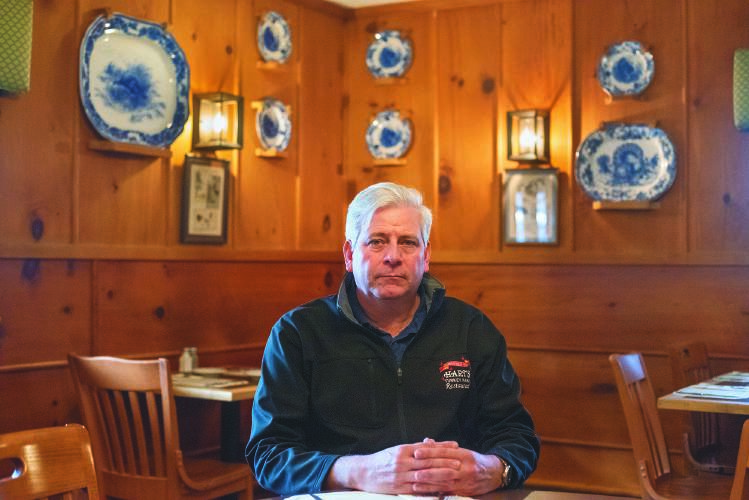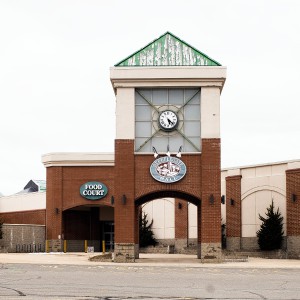Tight labor market still choking economic growth
| Published: 11-12-2023 5:39 PM |
Hart’s Turkey Farm Restaurant in Meredith is known for its hot sandwiches, turkey dinners and “every day is Thanksgiving” vibe. Their promise, as stated on the menu, is to serve delicious meals with exceptionally warm and friendly service. But that is getting more and more difficult, as management struggles to hire enough staff in a state where there are twice as many openings as workers available to fill them.
“If I could hire 25 or 30 people, I’d feel really good, but I don’t think we’ll get there,” said owner Sim Willey.
The story is the same in every industry in the state, leaving people to wonder, where have all the workers gone?
Unemployment is low in New Hampshire, with workforce participation at nearly 65%, higher than the national average of 64%. According to the U.S. Chamber of Commerce, New Hampshire is one of the hardest states in which to find workers, with only 41 available for every 100 open job positions.
This hurts the state’s economy, according to Michael Skelton, president and chief executive officer of the Business and Industry Association of New Hampshire. The low unemployment rate puts pressure on employers who face high demand for their products and services but can’t expand to meet it.
“There is no silver bullet to address the challenges,” he said. “It will take effort over several areas over a long period of time.
The reasons for the worker shortage start with the state’s demographics. Kenneth Johnson, professor of sociology and senior demographer at the Carsey School of Public Policy at the University of New Hampshire, explained:
“New Hampshire is aging,” he said. “The young population is diminishing, and the older population is growing.”
Article continues after...
Yesterday's Most Read Articles
New Hampshire has experienced more deaths than births over several years, Johnson said, and, in the age 20 to 29 group, slightly more people left the state than came into it.
The large number of Baby Boomers aging out of the labor market is contributing to the labor crunch, he said.
While COVID-19 shutdowns impacted the labor market, there was already a worker shortage before the pandemic, said Richard Lavers, deputy commissioner at New Hampshire Employment Security.
“If you asked people in 2019 if there were enough workers, their response would have been no, there’s not. We had a worker shortage in 2019, prior to the pandemic, and we do now. However, it does feel different now,” he said.
Lavers said the pandemic caused workers to shift away from service-based work in such areas as health care, retail and hospitality and toward non-traditional gig work such as Uber driving and remote consulting. While the number of older workers has largely returned to pre-pandemic levels, the number of younger workers has fallen.
The effects are being felt statewide in every sector and in rural as well as in urban regions, according to Skelton. While some employers are able to fill vacancies with remote workers, industries that require workers onsite, such as manufacturing, health care, tourism and hospitality, are facing acute challenges.
Although the minimum wage has been stagnating at $7.25 an hour for several years, market salaries are well above that, Skelton said. In fact, demand for workers is driving up wages to the point that rising labor costs are putting pressure on some business owners trying to provide services and remain profitable.
Karmen Gifford, president of Lakes Region Chamber of Commerce, blames a tight housing market for compounding the problem.
According to the U.S. Chamber of Commerce, housing is more expensive in New Hampshire than the national average. Median rent is $1,145 per month, and the median home cost is $467,775.
“In our area, it’s a lack of inventory,” Gifford said. “People are staying in their rental properties because there is no housing for them to transition into. People say they will take a job, then they can’t find an apartment or a long-term bed and breakfast, and have to back out of accepting the offer.”
Skelton agreed, adding, “We know building more housing will help support workforce sustainability and growth. People want to stay, to move closer to a job they would like to take, people who want to move to New Hampshire for a job — we need more housing at all levels.”
Out of necessity, some business owners have become landlords.
Just this year, Willey has housed 48 Hart’s Turkey Farm Restaurant workers from Moriches, Jamaica, Barbados and El Salvador in several properties he has purchased near the restaurant.
“It is difficult to live here, there is nothing affordable,” he said. “We have to provide housing. Originally, we housed visa workers, but now we house American workers too. Not in my wildest dreams did I think I’d need to help them find a place to live.”
John Stephens, owner of Stephens Landscaping in Moultonborough, brings in his seasonal workforce from Puerto Rico. Finding housing proved to be a challenge for them, so his company acquired several multi-family and single family homes, so they can bring their families with them and put their children in school.
“They weren’t able to find rentals, there are so few of them around here, and the ones that are available were overpriced, so we house them, and even provide cars for transportation to work,” he said.
Other factors, such as limited reliable child care and a lack of public transportation are hindering workforce growth, according to Cherie Holmes, designated institutional official for graduate medical education at Cheshire Medical Center in Keene. The hospital is facing staffing shortages in every area, from cleaners, patient transporters and food service to nursing staff and physicians.
“We have a much higher percentage of job openings, double the amount than people actually looking for a job,” she said. “We’ve seen a large amount of provider turnover throughout the system for various reasons: burnout, people choosing to leave medicine completely, or going to another location with higher compensation, better work-life balance or more stability. It is throughout every staffing area.”
Dr. Gina O’Brien, interim chief medical officer at Cheshire Medical Center, said inadequate staffing has led to fewer hospital beds, which in turn leads to backlogs of patients in the emergency room.
Gifford said staffing shortages have hit Lakes Region health care providers as well.
“Our hospitals have eliminated departments. Here in Laconia, there’s no birthing center. They recently eliminated the weight program. People who need a hip replacement can’t find a doctor, they have to go out of the area. And once people go out of the area, they’re probably getting all of their services out of the area,” she said.
When a business can’t find workers and must eliminate services or reduce hours of operation, the loss is felt throughout the economy, Gifford said. For example, restaurants and hotels not only lose revenue, they bring in less rooms and meals taxes to the state.
So, what is the solution?
Skelton said there is no one single solution, just a number of different approaches that need to work together. Retraining and reengaging older workers in new opportunities “is a solution we can’t afford to ignore,” he said. Federal action on immigration reform so that new arrivals can get work visas would help fill the gap as well.
All these will take time. Meanwhile, businesses such as Hart’s Turkey Farm do their best with the employees they have.
Willey said, “At this point, it is hard to see a true solution. We will learn to live with a smaller workforce, learn to tighten up, don’t offer as many things, don’t stay open as long. It might never come back.”
These articles are being shared by partners in The Granite State News Collaborative. For more information visit collaborativenh.org.




 Adam Montgomery sentenced to minimum 56 years on murder charges in young daughter’s death
Adam Montgomery sentenced to minimum 56 years on murder charges in young daughter’s death Neighboring landowner objection stalls Steeplegate redevelopment approval
Neighboring landowner objection stalls Steeplegate redevelopment approval Following budget cut, Pembroke revisits future of elementary school re-build
Following budget cut, Pembroke revisits future of elementary school re-build Granite Geek: Free government software for taxes – what could go wrong? (Not much, as it turns out)
Granite Geek: Free government software for taxes – what could go wrong? (Not much, as it turns out)
